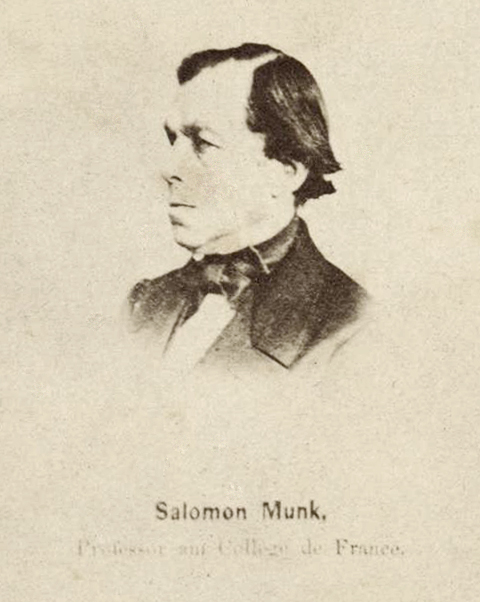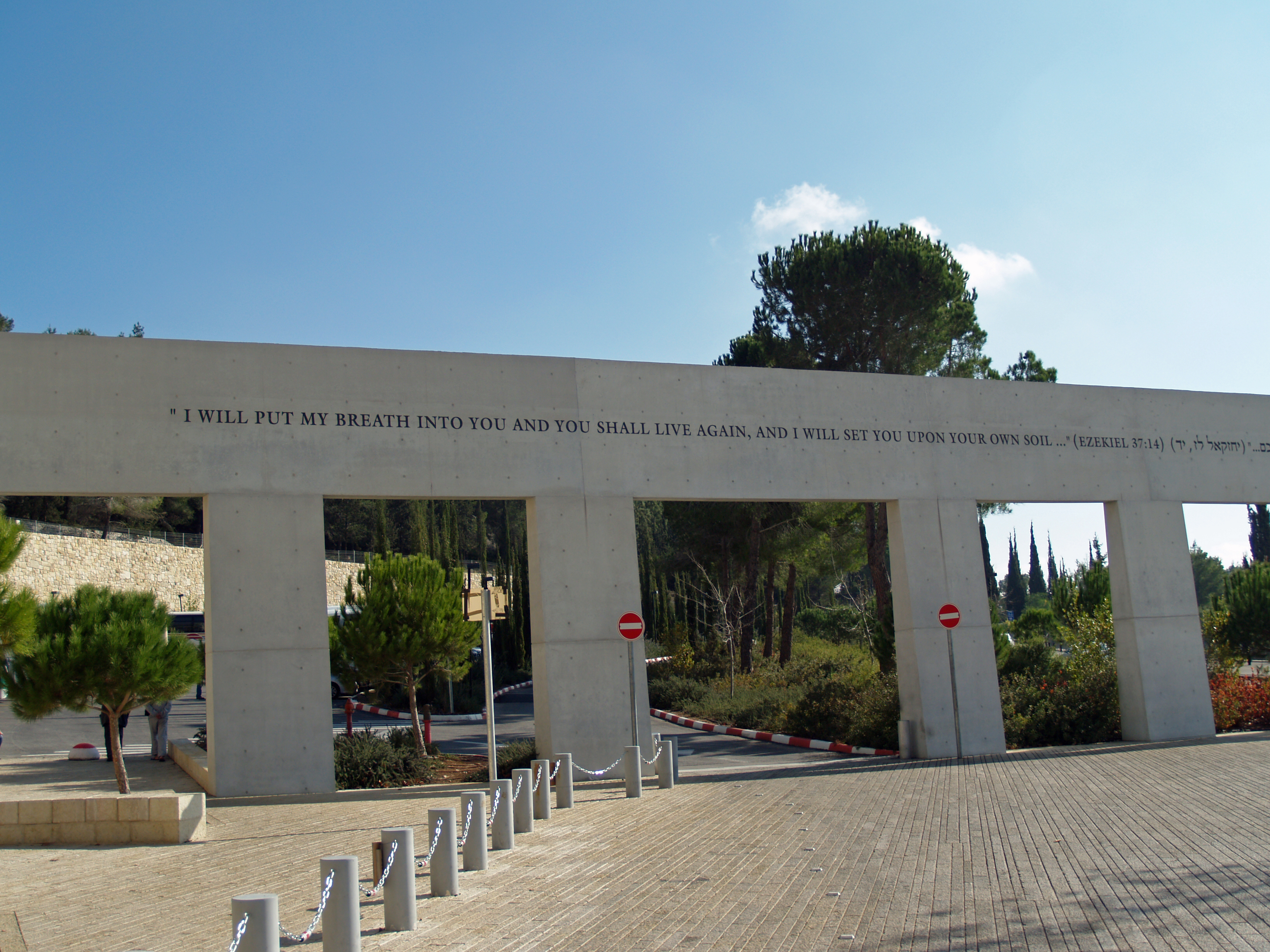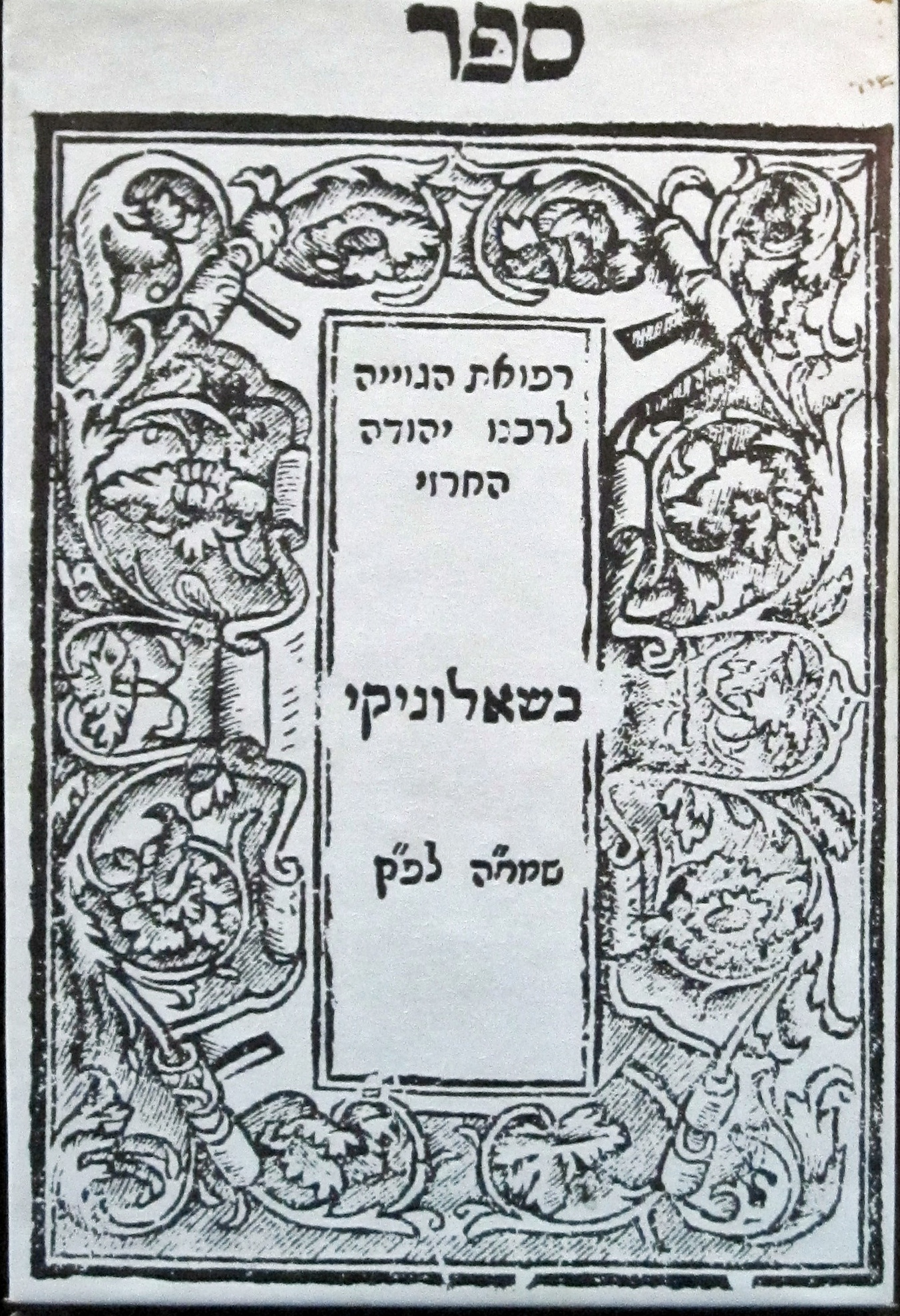|
Abraham Bedersi
Abraham Bedersi (Hebrew: אברהם בדרשי) was a Provençal Jewish poet; he was born at Béziers (whence his surname ''Bedersi'', or native of Béziers). The dates of his birth and death have not been ascertained. An elegy which he composed during his youth, upon the ''Confiscation of the Books of the Law'', is supposed by some scholars to refer to the burning of the ''Talmud'' in Paris about the year 1242; by others, to the confiscation of the Talmud in Aragon in 1264, as the direct result of the Barcelona controversy. If the latter view is correct, Bedersi may well have flourished about the year 1240 ( Leopold Zunz, ''Z.G.,'' p. 413). As appears from the letter sent by Bedersi to Don Vidal Solomon (''Ḥotam Toknit,'' p. 4), he went early (perhaps in 1273) to Perpignan, where he attended the lectures of Joseph Ezubi. He returned often to Perpignan and took an active part in its communal affairs. A number of his letters, contained in MS. cviii (72) of the Vie ... [...More Info...] [...Related Items...] OR: [Wikipedia] [Google] [Baidu] |
Hebrew
Hebrew (; ; ) is a Northwest Semitic language of the Afroasiatic language family. Historically, it is one of the spoken languages of the Israelites and their longest-surviving descendants, the Jews and Samaritans. It was largely preserved throughout history as the main liturgical language of Judaism (since the Second Temple period) and Samaritanism. Hebrew is the only Canaanite language still spoken today, and serves as the only truly successful example of a dead language that has been revived. It is also one of only two Northwest Semitic languages still in use, with the other being Aramaic. The earliest examples of written Paleo-Hebrew date back to the 10th century BCE. Nearly all of the Hebrew Bible is written in Biblical Hebrew, with much of its present form in the dialect that scholars believe flourished around the 6th century BCE, during the time of the Babylonian captivity. For this reason, Hebrew has been referred to by Jews as ''Lashon Hakodesh'' (, ) since ... [...More Info...] [...Related Items...] OR: [Wikipedia] [Google] [Baidu] |
Samuel David Luzzatto
Samuel David Luzzatto ( he, שמואל דוד לוצאטו, ; 22 August 1800 – 30 September 1865), also known by the Hebrew acronym Shadal (), was an Italian Jewish scholar, poet, and a member of the Wissenschaft des Judentums movement. Early life Luzzatto was born in Trieste on 22 August 1800 ( Rosh Hodesh, 1 Elul, 5560), and died at Padua on 30 September 1865 (Yom Kippur, 10 Tishrei 5626). While still a boy, he entered the Talmud Torah of his native city, where besides Talmud, in which he was taught by Abraham Eliezer ha-Levi, chief rabbi of Trieste and a distinguished pilpulist, he studied ancient and modern languages and science under Mordechai de Cologna, Leon Vita Saraval, and Raphael Baruch Segré, who later became his father-in-law. He studied the Hebrew language also at home, with his father, who, though a turner by trade, was an eminent Talmudist. Luzzatto manifested extraordinary ability from his very childhood, such that while reading the Book of Job at school ... [...More Info...] [...Related Items...] OR: [Wikipedia] [Google] [Baidu] |
Heinrich Grätz
Heinrich Graetz (; 31 October 1817 – 7 September 1891) was amongst the first historians to write a comprehensive history of the Jewish people from a Jewish perspective. Born Tzvi Hirsch Graetz to a butcher family in Xions (now Książ Wielkopolski), Grand Duchy of Posen, in Prussia (now in Poland), he attended Breslau University, but since Jews at that time were barred from receiving Ph.D.s there, he obtained his doctorate from the University of Jena.''Encyclopaedia Judaica'' (2007, 2nd ed.) entry on "Graetz, Heinrich," by Shmuel Ettinger and Marcus Pyka After 1845 he was principal of the school of the [...More Info...] [...Related Items...] OR: [Wikipedia] [Google] [Baidu] |
Salomon Munk
Salomon Munk (14 May 1803 – 5 February 1867) was a German-born Jewish-French Orientalist. Biography Munk was born in Gross Glogau in the Kingdom of Prussia. He received his first instruction in Hebrew from his father, an official of the Jewish community; and on the latter's death he joined the Talmud class of R. Jacob Joseph Oettinger. At the age of fourteen he was able to officiate as " ba'al ḳoreh" (reader of the Torah) in the synagogue of the Malbish 'Arummim society at Gross Glogau. In 1820 he went to Berlin, where he came into friendly relations with Leopold Zunz and with the philologist A. W. Zumpt, studying Latin and Greek with E. Gans. Two years later he entered the Joachimsthaler Gymnasium, supporting himself at the same time by tutoring. In 1824 he entered the University of Berlin, attending the lectures of Böckh, Hegel, and especially of Bopp. As no Jews were at that time eligible for government positions in Prussia, Munk left the university without t ... [...More Info...] [...Related Items...] OR: [Wikipedia] [Google] [Baidu] |
Jedaiah Bedersi
Jedaiah ben Abraham Bedersi (c. 1270 – c. 1340) ( he, ) was a Jewish poet, physician, and philosopher; born at Béziers (hence his surname Bedersi). His Occitan name was En Bonet, which probably corresponds to the Hebrew name Tobiah;compare ''Oheb Nashim'' in the ''Zunz Jubelschrift,'' Hebrew part, p. 1) and, according to the practices of Hachmei Provence, he occasionally joined to his name that of his father, Abraham Bedersi. In his poems he assumed the appellation "Penini" (, "Dispenser of Pearls"), and because of this appellation the ethical work ''Mibḥar haPeninim'' of Solomon ibn Gabirol has been erroneously ascribed to Bedersi. Early life Bedersi was a precocious child. He was scarcely fifteen years old when he published his work ''Baḳḳashat ha-Memin'' (The Mem Prayer), a hymn of 1000 words, each of which begins with the letter mem (translated into Latin and German). Bedersi's father, very much pleased with those evidences of his child's precocity, expr ... [...More Info...] [...Related Items...] OR: [Wikipedia] [Google] [Baidu] |
Frankfort-on-the-Oder
Frankfurt (Oder), also known as Frankfurt an der Oder (), is a city in the German state of Brandenburg. It has around 57,000 inhabitants, is one of the easternmost cities in Germany, the fourth-largest city in Brandenburg, and the largest German city on the river Oder. Frankfurt sits on the western bank of the river, opposite the Polish town of Słubice, which was a part of Frankfurt until 1945, and called ''Dammvorstadt'' until then. The city is located about east of Berlin, in the south of the historical region Lubusz Land. The large lake Helenesee lies within Frankfurt's city limits. The name of the city makes reference to the Franks, and means ''Ford of the Franks'', and there appears a Gallic rooster in the coat of arms of the city. The official name ''Frankfurt (Oder)'' and the older ''Frankfurt an der Oder'' are used to distinguish it from the larger city of Frankfurt am Main. The city's recorded history began in the 13th century as a West Slavic settlement. During it ... [...More Info...] [...Related Items...] OR: [Wikipedia] [Google] [Baidu] |
Book Of Ezekiel
The Book of Ezekiel is the third of the Latter Prophets in the Tanakh and one of the major prophetic books, following Isaiah and Jeremiah. According to the book itself, it records six visions of the prophet Ezekiel, exiled in Babylon, during the 22 years from 593 to 571 BCE, although it is the product of a long and complex history and does not necessarily preserve the very words of the prophet. The visions, and the book, are structured around three themes: (1) Judgment on Israel (chapters 1–24); (2) Judgment on the nations (chapters 25–32); and (3) Future blessings for Israel (chapters 33–48). Its themes include the concepts of the presence of God, purity, Israel as a divine community, and individual responsibility to God. Its later influence has included the development of mystical and apocalyptic traditions in Second Temple and Judaism and Christianity. Structure Ezekiel has the broad three-fold structure found in a number of the prophetic books: oracles of ... [...More Info...] [...Related Items...] OR: [Wikipedia] [Google] [Baidu] |
Al-Ḥarizi
Yehuda Alharizi, also Judah ben Solomon Harizi or al-Harizi ( he, יהודה בן שלמה אלחריזי, ''Yehudah ben Shelomo al-Harizi'', ar, يحيا بن سليمان بن شاؤل أبو زكريا الحريزي اليهودي من أهل طليطلة, ''Yahya bin Sulaiman bin Sha'ul abu Zakaria al-Harizi al-Yahudi min ahl Tulaitila''), was a rabbi, translator, poet and traveller active in Spain in the Middle Ages (mid-12th century in Toledo? – 1225 in Aleppo). He was supported by wealthy patrons, to whom he wrote poems and dedicated compositions. Life Judah al-Harizi was born in Toledo in the mid-12th century into a family that was originally from Jerez and was educated in Castile. A Hebrew biographer and a contemporary, Ibn al-Sha’ar al-Mawsili (1197–1256), provided the only known physical description of al-Harizi: As was the practice for educated men of the period, he travelled extensively throughout the region, visiting Jewish communities and various centr ... [...More Info...] [...Related Items...] OR: [Wikipedia] [Google] [Baidu] |
Al-Hariri Of Basra
Abū Muhammad al-Qāsim ibn Alī ibn Muhammad ibn Uthmān al-Harīrī ( ar, أبو محمد القاسم بن علي بن محمد بن عثمان الحريري), popularly known as al-Hariri of Basra (1054 – 10 September 1122) was an Arab poet, scholar of the Arabic language and a high government official of the Seljuks. He is known for his ''Maqamat al-Hariri'' (also known as the ‘'Assemblies of Hariri'’), a collection of some 50 stories written in the '' Maqama'' style, a mix of verse and literary prose. For more than eight centuries, Al-Hariri's best known work, his ''Maqamat'' has been regarded as one of the greatest treasure in Arabic literature after the Koran and the Pre-Islamic poetic canons. Although the maqamat did not originate with al-Hariri, he elevated the genre to an art form. Biography Al-Hariri was born 446 AH (1054 AD) and died in his native city of Basra on 6 Rajab, AH 516 (10 September, 1122 AD). Although his place of birth is uncertain, scholars sug ... [...More Info...] [...Related Items...] OR: [Wikipedia] [Google] [Baidu] |
Abu Al-Ḥasan Meïr Ibn Al-Ḥarit
Abu or ABU may refer to: Places * Abu (volcano), a volcano on the island of Honshū in Japan * Abu, Yamaguchi, a town in Japan * Ahmadu Bello University, a university located in Zaria, Nigeria * Atlantic Baptist University, a Christian university located in Moncton, New Brunswick, Canada * Elephantine, Egypt, known as Abu to the Ancient Egyptians * A. A. Bere Tallo Airport (IATA: ABU), in Atambua, Indonesia * Mount Abu, the highest mountain in the Indian state of Rajasthan People * Abu (Arabic term), a component of some Arabic names * Ab (Semitic), a common part of Arabic-derived names, meaning "father of" in Arabic * Abu al-Faraj (other) * Abu Baker Asvat, a murdered South African activist and medical doctor * Abu Ibrahim (other) * Abu Mohammed (other) * Abu Salim (other) *Abdul-Malik Abu (born 1995), American basketball player in the Israeli Premier Basketball League * Raneo Abu, Filipino politician Other uses * Abu (god), a minor god of v ... [...More Info...] [...Related Items...] OR: [Wikipedia] [Google] [Baidu] |
Kingdom Of Castile
The Kingdom of Castile (; es, Reino de Castilla, la, Regnum Castellae) was a large and powerful state on the Iberian Peninsula during the Middle Ages. Its name comes from the host of castles constructed in the region. It began in the 9th century as the County of Castile (''Condado de Castilla''), an eastern frontier lordship of the Kingdom of León. During the 10th century, its counts increased their autonomy, but it was not until 1065 that it was separated from León and became a kingdom in its own right. Between 1072 and 1157, it was again united with León, and after 1230, this union became permanent. Throughout this period, the Castilian kings made extensive conquests in southern Iberia at the expense of the Islamic principalities. The Kingdoms of Castile and of León, with their southern acquisitions, came to be known collectively as the Crown of Castile, a term that also came to encompass overseas expansion. History 9th to 11th centuries: the beginnings According to ... [...More Info...] [...Related Items...] OR: [Wikipedia] [Google] [Baidu] |
Abu Al-Ḥasan Saul
Abu or ABU may refer to: Places * Abu (volcano), a volcano on the island of Honshū in Japan * Abu, Yamaguchi, a town in Japan * Ahmadu Bello University, a university located in Zaria, Nigeria * Atlantic Baptist University, a Christian university located in Moncton, New Brunswick, Canada * Elephantine, Egypt, known as Abu to the Ancient Egyptians * A. A. Bere Tallo Airport (IATA: ABU), in Atambua, Indonesia * Mount Abu, the highest mountain in the Indian state of Rajasthan People * Abu (Arabic term), a component of some Arabic names * Ab (Semitic), a common part of Arabic-derived names, meaning "father of" in Arabic * Abu al-Faraj (other) * Abu Baker Asvat, a murdered South African activist and medical doctor * Abu Ibrahim (other) * Abu Mohammed (other) * Abu Salim (other) *Abdul-Malik Abu (born 1995), American basketball player in the Israeli Premier Basketball League * Raneo Abu Raneo "Ranie" Enriquez Abu (born October 28, 1970) is a Fi ... [...More Info...] [...Related Items...] OR: [Wikipedia] [Google] [Baidu] |






